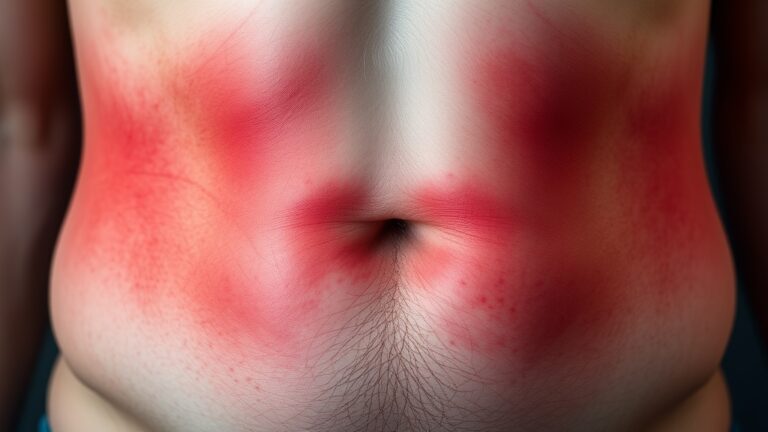Have you ever found yourself biting into your favorite dish only to uncover it tastes like cardboard? You’re not alone. Loss of taste, or ageusia, can leave you feeling frustrated and disconnected from the joys of eating. It can stem from various causes like infections, medications, or even neurological issues. Grasping this condition is key to maneuvering your experience. Let’s delve into what you need to know and how to cope.
What is Ageusia
Grasping Ageusia can seem overwhelming, particularly when you or a loved one is handling it. This medical condition refers to the complete loss of taste, impacting about 1-2 out of every 1,000 people.
Ageusia often stems from damage to your taste buds, nerves, or brain pathways that relay taste perception. Viral infections, like COVID-19, certain medications, or neurological conditions such as Parkinson’s disease are common culprits.
To diagnose this condition, healthcare professionals perform taste tests using sweet, sour, salty, or bitter solutions on various parts of your tongue.
If you’re facing Ageusia, recall that treatment focuses on tackling the root causes, which could include infections or nutritional deficiencies like zinc or vitamin B12, helping you regain your taste and health over time.
Symptoms of Loss of Taste
At times you lose the ability to taste, it can feel disheartening and even confusing. You may notice that your favorite foods just don’t have the same appeal anymore, and you could experience strange phantom flavors, like a persistent metallic taste.
This loss can shake up your appetite and impact your daily life, leading to unintended changes in your eating habits.
Common Symptoms Experienced
Losing your sense of taste can feel disconcerting, especially since flavor plays such a vital role in our daily enjoyment of food. Should you be experiencing taste dysfunction, you could notice:
- An inability to detect sweet, sour, salty, bitter, or umami flavors.
- Phantom tastes, like a persistent metallic or bitter flavor, even while not eating.
- Reduced taste sensitivity, making food seem bland or unappetizing.
These symptoms can often go hand in hand with a loss of smell, also known as anosmia, affecting your complete eating experience.
Whether your loss of taste appeared suddenly or gradually, understanding that you’re not alone is key. These changes can lead to discomfort and frustration, but awareness is the initial step toward finding solutions.
Impact on Lifestyle
The experience of losing your sense of taste often touches more than just your palate; it can ripple through your entire lifestyle. You could find yourself eating less, leading to unintended weight loss and potential nutritional deficiencies.
This change can affect your general quality of life, as shared meals often become less enjoyable. Sadly, about 40% of individuals report feeling more depressed due to these shifts in food-related social interactions.
Additionally, you could overuse salt or sugar, increasing health problems like hypertension and diabetes. Maintaining good oral hygiene can also become a challenge, as a diminished taste could cause you to consume spoiled food without realizing it.
It’s crucial to address these changes for your health.
Common Causes of Ageusia
Though many could fail to recognize it, losing your sense of taste, or ageusia, can arise from a variety of surprising sources. Grasping these can help identify whether you’re facing ageusia:
- Viral infections like COVID-19 can cause temporary loss of taste, affecting about 7% of mild cases.
- Medications such as antibiotics and antihistamines disrupt taste function through damaging taste buds or causing dry mouth.
- Underlying conditions, including neurological disorders like Alzheimer’s and Parkinson’s, can impair taste perception by affecting nerve signals.
Additionally, a zinc deficiency can lead to ageusia, emphasizing the importance of your medical history. Stay informed about these different conditions and how they could connect to your experiences with taste.
Diagnosis and Testing for Taste Disorders
Comprehending why you could struggle with taste is only part of the expedition; obtaining an accurate diagnosis plays a pivotal role in tackling this issue. To pinpoint the reason for your taste dysfunction, an otolaryngologist could start with taste tests, applying different solutions to various tongue areas. Should structural problems be suspected, imaging tests like MRI or CT scans can offer significant insights.
Blood tests help identify nutritional deficiencies or systemic issues that could affect taste. Reviewing your medical history is essential too, as it uncovers any medications or exposure to toxins that may contribute to your condition.
Additionally, electrogustometry measures electrical thresholds on your tongue to evaluate nerve function, particularly in cases of unexplained taste loss.
Treatment Options for Ageusia
At the moment ageusia strikes, exploring treatment options can feel overwhelming, but you’ll uncover that several effective solutions exist to help reignite your taste buds. Initially, consult your healthcare provider to pinpoint the root cause of your taste loss.
They could suggest:
- Antihistamines or Decongestants for ageusia linked to cold or flu symptoms.
- Zinc supplementation in case you’re experiencing deficiency (8mg/day for women, 11mg/day for men).
- Improved Oral Hygiene to tackle any dental issues that could be affecting your taste or smell.
Sometimes, treating the source directly, like quitting smoking or taking antibiotics for bacterial infections, makes a big difference.
Following your healthcare provider’s medical advice will guide you towards reclaiming your taste.
Nutritional Implications of Taste Loss
Losing your sense of taste can really shake things up whenever it comes to your appetite and general nutrition. A lot of people find themselves eating less, which can lead to unexpected weight loss and missed nutrients.
Without those lively flavors, it’s easier to skip fruits and veggies, and that could put you at risk for nutritional deficiencies.
Impact on Appetite
At times you’re unable to taste food, it can feel like a large piece of your enjoyment has disappeared. This taste loss can greatly impact your appetite and dietary habits. Here’s what you could experience:
- Decreased Appetites: Taste loss can lead to a reduction in appetite by up to 30%.
- Weight Loss Risks: Around 40% of those affected could encounter unwanted weight loss as a result.
- Food Enjoyment Decline: A study revealed that 68% of individuals with COVID-19-related taste loss reported lower food enjoyment.
With these changes, the risk of malnutrition grows, particularly when you’re consuming 20% fewer calories.
It’s essential to find ways to make food appealing again to sustain a balanced diet and general health.
Nutritional Deficiencies Risks
At times you can’t taste your food, it couldn’t just be a minor inconvenience; it can lead to some serious nutritional deficiencies that affect your general health. Taste loss often reduces appetite, increasing your risk of malnutrition, especially in older adults.
For instance, many older adults experience unintended weight loss due to a diminished desire to eat. Zinc deficiency, linked to taste dysfunction, can affect your immune system, while vitamin B12 deficiency could hinder nerve function and flavor perception.
Additionally, should you resort to salty or sugary foods to compensate, you may risk conditions like hypertension or diabetes. Cancer patients facing protein-calorie malnutrition during treatment also experience significant weight loss, impacting their complete wellness.
Impact on Quality of Life
At times taste buds start to fade, it can feel like a part of life is missing, and you could struggle to find joy in meals that once pleased you. This can markedly affect your quality of life in several ways:
- Increased Anxiety and Depression: Over 40% of people with taste disorders report feeling heightened anxiety or depression because the diminished sense of smell and taste makes experiences less enjoyable.
- Diet Changes: Nearly 60% of those with long-term taste loss modify their diets, often using excess salt or sugar, which can worsen existing health conditions.
- Social Isolation: About 35% of individuals experience social isolation as shared meals become less enjoyable or even stressful.
Consulting a healthcare professional can help identify any root causes and guide you through managing these troubling conditions.
Preventive Measures and Management
At the time it comes to preserving your sense of taste, taking proactive steps can make a big difference in your daily enjoyment of food. Start by maintaining good oral hygiene; brush twice daily and floss to prevent dental problems that can impair taste.
Stay hydrated—dry mouth can reduce your taste sensitivity by up to 30%. Limit smoking and alcohol, as both can harm taste buds over time.
Also, keep an eye on medication side effects with your doctor; about 20% of taste disorders relate to drugs like antibiotics or antihistamines.
Finally, make sure you’re getting enough zinc in your diet—around 8-11 mg daily—because deficiency can affect your taste as well.
Coping Strategies for Living With Ageusia
Existing with ageusia can be a challenge, but you can still find joy in food.
Through experimenting with different textures and temperatures, you can elevate your meals and make them more enjoyable, even without taste.
Adding aromatic herbs and spices can also help you experience flavors in new ways, keeping your dining experience fresh and exciting.
Nutritional Adjustment Techniques
While it could feel overwhelming to manage mealtimes without the joy of taste, there are practical strategies you can adopt to make your dining experience enjoyable and nutritious. Here are three key techniques:
- Focus on texture and temperature—varying these can make meals more appealing.
- Boost flavors with herbs and spices—use aromatic additions to engage your remaining taste buds.
- Consult a dietitian—get a personalized meal plan to guarantee a balanced diet rich in nutrient-dense foods, preventing malnutrition from deficiencies like zinc or vitamin B12.
Enhance Food Texture
At times you’re maneuvering the challenges of ageusia, or the loss of taste, it’s essential to find joy in your meals through other sensory experiences. Focusing on food textures can make eating enjoyable, even as taste and smell are limited. Here are some ideas:
| Texture Type | Food Examples | Sensory Benefit |
|---|---|---|
| Crunchy | Celery, carrots | Satisfying bite |
| Creamy | Avocado, hummus | Smooth mouthfeel |
| Chewy | Nuts, seeds | Lasting engagement |
| Temperature | Cold yogurt, warm granola | Exciting contrast |
Experiment with these textures to keep mealtimes interesting. Enjoying varied consistencies can stimulate your mouth and teeth, enhancing the complete experience, providing long-lasting satisfaction despite any current taste challenges.
When to Seek Medical Attention
It’s vital to identify at what point your loss of taste could necessitate a visit to the doctor. Should your taste not return within two weeks after recovering from COVID-19 or any infection, reach out for medical attention.
Here are key situations to evaluate:
- Should you experience sudden weight loss, trouble detecting spoiled food, or signs of malnutrition.
- Consult a doctor after starting new medications, as over 200 can impact taste.
- Visit an ENT specialist with taste issues along with nasal congestion or sinus pain, particularly should you have chronic rhinosinusitis.
Don’t overlook taste loss following head trauma, as it could indicate nerve damage needing specialized care. Taking action promptly can make a significant difference in your health!




